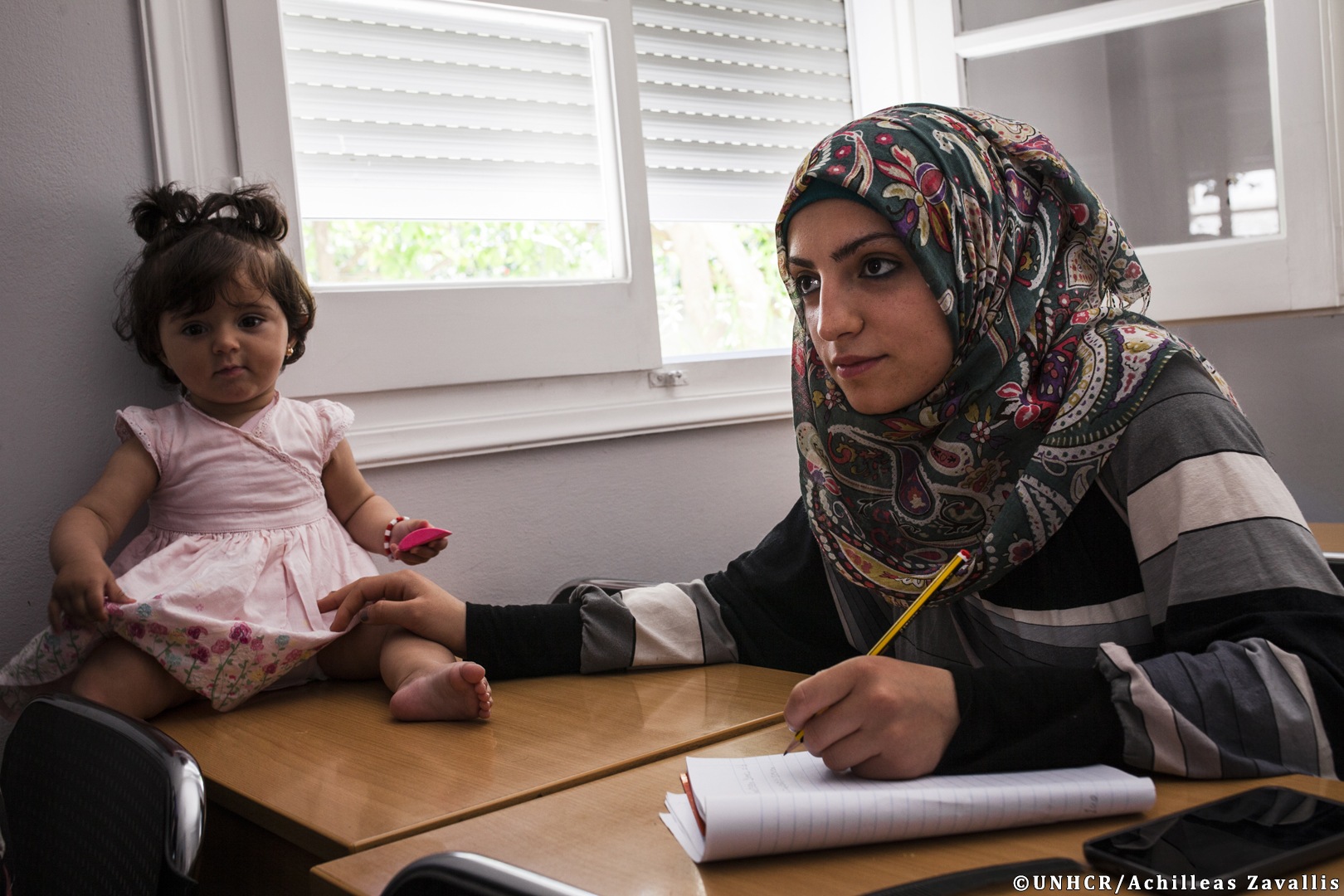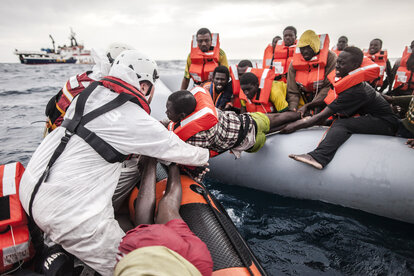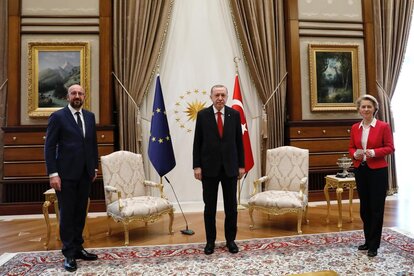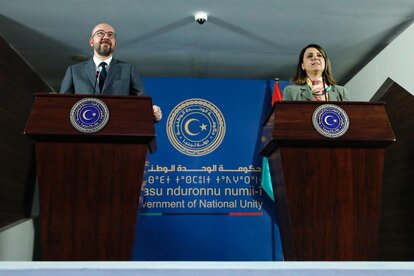Migration
European migration policy in the Mediterranean after the coronavirus pandemic

The EU's migration policy and mechanisms for dealing with the flow of migrants to our continent are many, diverse and constantly changing. This brief analysis does not attempt to examine the EU's various policies and organisations, but rather to outline some of the challenges and shortcomings that have arisen during this period of pandemic.
As the report jointly published by the Elcano Royal Institute, the Friedrich Naumann Foundation and the Barcelona Centre for International Affairs (CIDOB), 'A moment to reflect: Creating Euro-Mediterranean bonds that deliver', rightly points out, when it comes to migration in the Mediterranean, the prolonged humanitarian crisis allows little room for optimism, with more than 20,000 deaths at sea between 2014 and 2020[1]. Even so, the situation between 2015 and 2020 has evolved from 1.4 million[2] applicants for international protection in 2015 to 740,000 in 2019[3]. Despite this drastic drop, the responses and discourses still correspond to the worst moment of the crisis, as reflected in the report "The EU Approach on Migration in The Mediterranean", requested by the European Parliament's Committee on Civil Liberties, Justice and Home Affairs[4].

After the 2015 crisis, the most critical moment for migration policy was undoubtedly the coronavirus crisis. The exceptional nature of the pandemic has allowed Member States to restrict entry and exit to the Schengen area and to reintroduce controls within the European Union itself, a circumstance that was unthinkable before the pandemic, despite other challenges that had been experienced in the past, such as terrorism or even the 2015 crisis itself. Although these measures were not particularly aimed at migrants, the reality is that they have been the most affected group. Consulates and offices responsible for receiving asylum applications were closed for months[1].
The exceptional situations experienced during the pandemic have also accentuated problems with Search and Rescue policy at sea. In the absence of a coordinated policy on disembarkation of asylum seekers in the EU, each Member State adopts different measures. Some attempts such as the Malta Declaration have not been sufficient[2].

The EU's strategy remains overly dependent on agreements with third countries, especially with Libya and Turkey, and therefore on the willingness of those countries to comply. In the case of the agreement with Turkey, one of the biggest consequences has been the serious humanitarian crisis it has created on the Greek islands, which are European territory. In temporary stay centres for migrants, some migrants spend from one and a half to three years. It was estimated that it takes seven months from registration to decision and a further six months to resolve appeals[1]. These circumstances have been exacerbated by the pandemic and, according to Médecins Sans Frontières, it has been impossible to prevent the pandemic in the camps because they were stretched beyond their capacity[2].
In addition to informal agreements with Turkey and Libya, the EU has readmission agreements with non-European third countries which, according to a special report published this week by the European Court of Auditors, "the EU return system has major shortcomings that have the unintended effect of encouraging irregular immigration, rather than discouraging it". Migrants are aware of the EU's flawed policy and take advantage of the fact that only one in three individuals who are ordered to leave the EU return to their country of origin. In countries outside the European continent, the figure is one in five[3].

It is the lack of coordination and solidarity between EU member states that makes migration policy so fallible, as there is not one policy but twenty-seven. Despite the fact that the New Pact on Immigration and Asylum, presented by the European Commission, attempts to promote solidarity between states. The Dublin III principles that the receiving country should be responsible for the processing and co-payment of resettlement are still present. This still causes inequality between maritime countries or countries close to the external borders with the rest of the EU countries and forces them to carry out drastic policies in permanent crisis situations, as in the case of Italy, when it closes its ports, or Greece when it does not accept asylum seekers.
In short, this brief analysis reflects some of the shortcomings and challenges of our migration policy in the Mediterranean Sea. Cooperation with countries on the southern shore of the Mediterranean and coordination and solidarity among EU countries remains a challenge for a fair, human rights-respecting and efficient migration policy.
[1] Francesco Pasetti, A Euro-Mediterranean agenda on migration: How to do things differently. In the report: A moment to reflect: Creating Euro-Mediterranean bonds that deliver, 2021.
[2] EASO, Annual Report on the Situation of Asylum in the European Union, 2016, pp. 8-10.
[3] EASO, Annual Report on the Situation of Asylum in the European Union, 2020, p. 57.
[4] This analysis is based on some of the findings of the report. The author of the analysis strongly recommends reading it.
[1] EASO, Covid-19 emergency measures in asylum and reception systems, 2.6.2020, p. 10.
[2] In Spain we all remember the entry of the Aquarius boat in 2018, after Malta and Italy refused permission to disembark.
[1] ECA, Asylum, Re-location and Return of Migrants: Time to Step up Action to Address Disparities between Objectives and Results, Special Report No 24/2019, p. 48.
[2] MSF, COVID-19: BBC Panorama investigates the squalid Greek refugee camps risking virus outbreak, 27.10.2020.
[3] European Court of Auditors. EU readmission cooperation with third countries: relevant actions yielded limited results. Report 17/2021. p 4-7.
